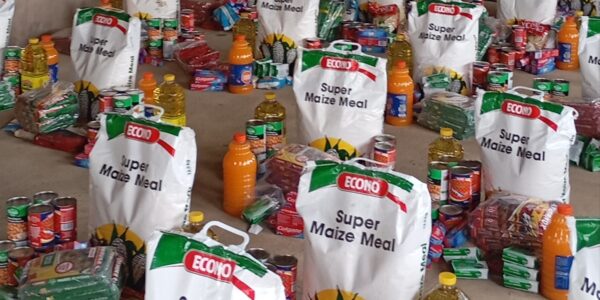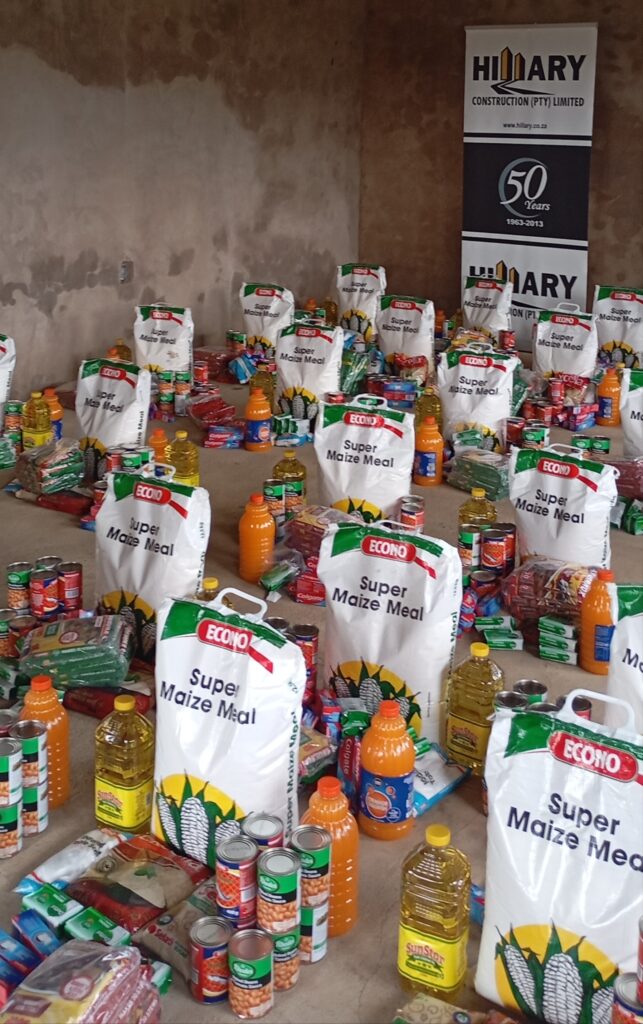
Introduction:
Demographic Characteristics:
The majority of beneficiaries (70%) were female, with an average age of 35 years. Most beneficiaries (80%) were unemployed, and 60% had a monthly household income of less than R1,000.
The distribution of food parcels to vulnerable community members in Elim has been a vital intervention aimed at addressing food insecurity and poverty. Hilary Construction (PTY) Limited in collaboration with local civil society donated food parcels for 200 beneficiaries in Elim. There`s a great need for such assistance as poverty has been evident in most community members`homes and little or nothing is being done to address such challenges.
Food Security Status:
Prior to receiving food parcels, 90% of beneficiaries reported experiencing food insecurity, with 60% indicating that they went hungry at least once a week. After receiving food parcels, 80% of beneficiaries reported improved food security, with 40% indicating that they no longer went hungry.
Perceptions of the Food Parcel Initiative:
Beneficiaries overwhelmingly (95%) reported that the food parcels had a positive impact on their lives, citing improved food security, reduced hunger, and enhanced well-being. Beneficiaries also appreciated the variety and quality of food items provided.
Challenges:
- Insufficient Funding: The initiative faced funding constraints, which limited the number of beneficiaries and the frequency of food parcel distributions.
- Logistical Challenges: Beneficiaries reported difficulties in accessing distribution points during rain season, particularly for those living in very remote areas.
- Limited Sustainability: The initiative relied heavily on external funding, which raised concerns about long-term sustainability.
Recommendations:
- Diversify Funding Sources: Explore alternative funding sources, such as local government partnerships, corporate sponsorships, and community fundraising initiatives.
- Improve Logistics: Enhance distribution logistics by partnering with local transport providers, using mobile distribution units, or establishing satellite distribution points.
- Promote Sustainability: Foster community ownership and participation by establishing a community-led food parcel initiative, which can help ensure long-term sustainability.
- Promote the creation of self or cooperative employment to enable vulnerable community members to sustain their lives.
Conclusion:
The food parcel initiative has had a significant positive impact on vulnerable community members in Elim, improving food security, reducing hunger, and enhancing overall well-being. While challenges persist, addressing these through diversified funding, improved logistics, and promoting sustainability can help ensure the long-term viability and effectiveness of this vital initiative.
